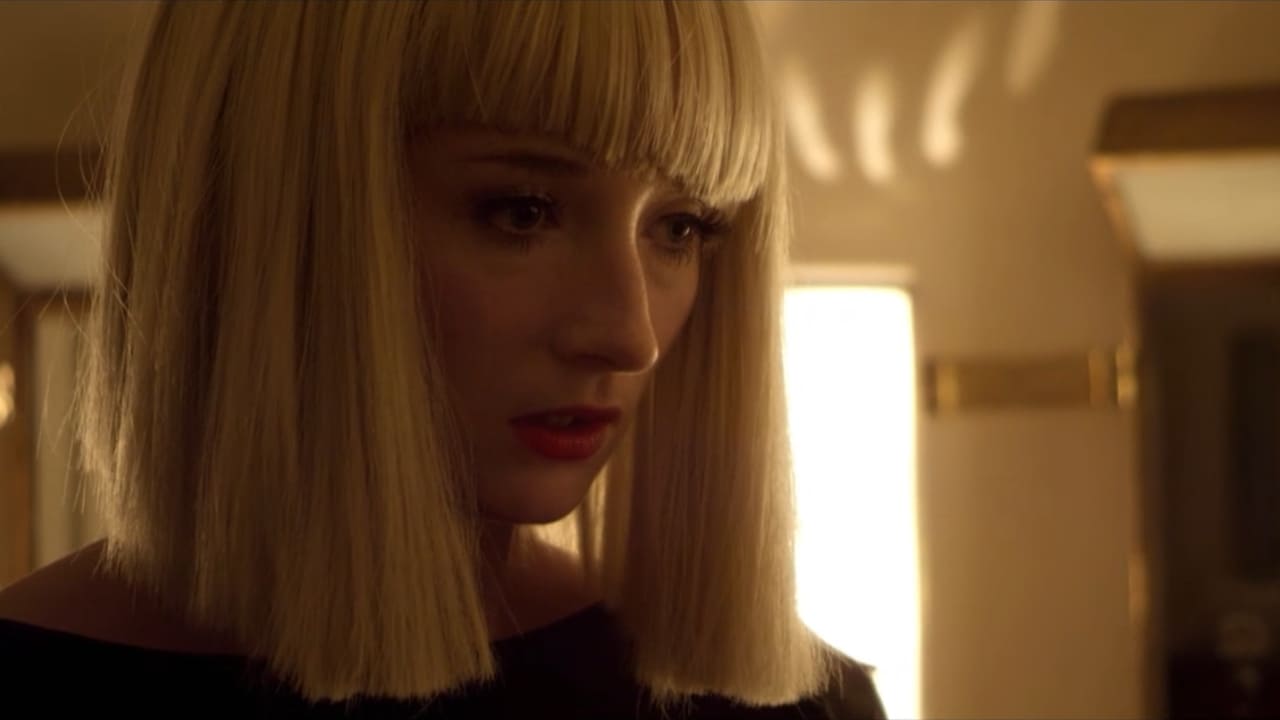

Better Late Then Never
... View MoreIf you're interested in the topic at hand, you should just watch it and judge yourself because the reviews have gone very biased by people that didn't even watch it and just hate (or love) the creator. I liked it, it was well written, narrated, and directed and it was about a topic that interests me.
... View MoreOne of the best movies of the year! Incredible from the beginning to the end.
... View MoreThrough painfully honest and emotional moments, the movie becomes irresistibly relatable
... View More"Die Unsichtbare" is a German movie from 2011, so it had its 5th anniversary last year. It is probably the most known work by Germany's most known mother-son filmmaker duo Christian and Heide Schwochow. They received a nice deal of awards attention here and the cast got their fair share as well. Dagmar Manzel for example won a German Film Award here, but I must say I am a bit baffled by this as she did not really stand out and same goes for her co-nominee. Instead I liked Noethen and Mühe more from the supporting cast if the former still counts as supporting. It is a relatively long movie, runs for over 110 minutes and stars many big names from the German film industry. The consequence is sadly as well that several of them were really wasted. This especially applies to Corinna Harfouch and Ulrich Matthes, who had virtually nothing to work with. Ronald Zehrfeld has more screen time the other two, but his material is not too great here either sadly. This film is not bad, but looking at the cast Schwochow had at his disposal, this could have been pretty great, so it is a bit of a missed opportunity.The heart and soul of the film, however, is young Danish actress Stine Fischer Christensen, who was a pretty good casting decision here, for the ugly duckling who gets seen eventually and cast for a lead character in a prestigious stage play. And when we find out about the real reasons of this casting decision, it makes even more sense I guess. Here we have a good example of a film on film, or a film on acting I should maybe say. The way SFC transforms more and more into her character is interesting to witness, how she tries to beat her insecurities and even succeeds, but still this transformation may lead her to catastrophe. Sometimes you need to be somebody else in order to really know who you actually are. I found these scenes and the scenes with the theatre group also much more significant and telling than these with her family and like I said earlier, I find it strange that the German Film Academy obviously saw it the other way around. Now overall, it was a pretty decent watch. Nowhere near the best of the year from Europe or even the world back in 2011, but one of the better German movies from that year. I recommend checking it out.
... View MoreI have seen this movie in German language, even if I speak German a little. Even though, Die Unsichtbare really hit me. It was so intense, real and full of emotions, that it's even impossible to feel untouched by it. The acting was perfect, the storyline direct and the story was frighteningly real. The character of Josephine was believable mainly because of the pain and suffering she has been through. This movie reminds me of Black Swan, but the main difference is that Black Swan was more abstract and visual. Black Swan was interwoven by Nina's hallucinations, we saw mainly her broken perspective of the world. Die Unsichtbare is more real and therefore even more emotional. Josephine is played very well by young actress Stine Fisher Christensen, and as a psychotic directer shined Ulrich Noethen. This movie is not for everyone, it's really rough (the last half hour mainly) and emotionally smashing, even more than Black Swan.
... View MoreI saw this film as part of the Rotterdam Film Festival 2012. This film started as a seemingly simplistic, tragic love story (actress mingles with famous director, director drops her later on, and so on), but it progressed splendidly after half an hour. All the ingredients found their proper place in the well constructed film script. As a bonus we got an inside view in what happens back stage among the participants, and more importantly the "making of" process before a stage play is ready for a performance. Of course, we can never be sure this being typical for any stage play, but it certainly had the outlook of being realistic and truthful.Some of the plot ingredients became apparent not until after a while, like the mother of the actress bearing the burden of a handicapped daughter. The latter needed so much attention that her sister, our main character, seemed invisible for the mother (hence the title). Freud et al would have immediately caught this to be the foundation under the story. As a layman, I needed some time to catch up. Same was the case with the stage director, who made use of the underground frustrations in the process of creating a play. Even the relatively small role of the tunnel worker has its place in the overall story line.It serves no useful purpose to condense the story here in a few sentences, and I certainly do not want spoilers to be given away. Trust me that the net result is convincing and impressive. I found it worthy of the maximum score for the audience award when leaving the theater.
... View MoreGerman screenwriter and director Christian Schwochow's third feature film which he co-wrote with his father Heide Schwochow is a German-French co-production which was produced by Jochen Laube and Fabian Maubach. It tells the story of Josephine Lorenz who lives with her mother Susanne and her disabled younger sister Jule. She goes to a drama school and is auditioning for a part in a play called "Camille" which is to be directed by a famous theater director named Kaspar Friedmann. Josephine's first audition doesn't go that well and she thinks she has lost her opportunity to get the part, but after meeting the director for the first time and impressing him with her acting skills, she surprisingly lands the leading role. Josephine is ecstatic about having gotten the part she desired, but as she begin to know the character she is going to interpret and the director's strict demands, she utterly dedicates herself into meeting Kaspar's requirements and getting into character. Her mother who spends most of her time looking after Jule is happy on her eldest daughter's behalf, but the deeper Josephine sinks into the core of her character "Camille", the more distant she becomes from her family.Finely and engagingly directed by German filmmaker Christian Schwochow, this rhythmic fictional tale draws an intimate depiction of a complicated relationship between an actress and her director and an authentic portrayal of a young woman who whilst preparing for the main role in a play, lays her heart and soul on the line, exceeds her personal boundaries and takes on the persona of a severely afflicted character that drags her out of her shell. While notable for it's naturalistic milieu depictions, sterling production design by art director and production designer Kobita Syed and cinematography by cinematographer Frank Lamm, this character-driven and dialog-driven psychological drama which contains acting within acting and theater within film, is an invigorating study of acting and character development which examines themes such as family relations, coming-of-age, devotion and love.This tense, atmospheric, romantic and multifaceted study of character which is somewhat reminiscent of Darren Aronofsky's "Black Swan" (2010), is impelled and reinforced by it's stringent narrative structure, the magnificent and impressive acting performance by Danish actress Stine Fischer Christensen that surpasses her memorable acting performance in Susanne Bier's "After The Wedding" (2006), the riveting acting performance by German actor Ulrich Noethen and the reverent supporting acting performances by German actresses Dagmar Manzel, Anna Maria Mühe and Christina Drechsler in her second feature film role. A consistently gripping and strikingly compassionate independent film which gained, among other awards, the award for Best Actress Stine Fischer Christensen and the award of the Ecumenical Jury at the Karlovy Vary International Film Festival in 2011.
... View More